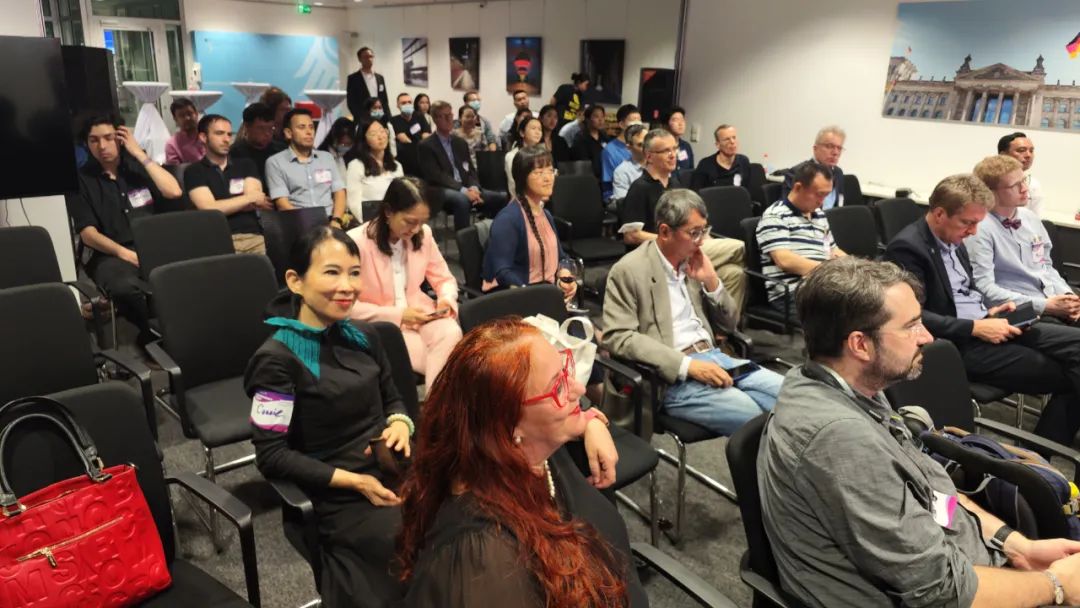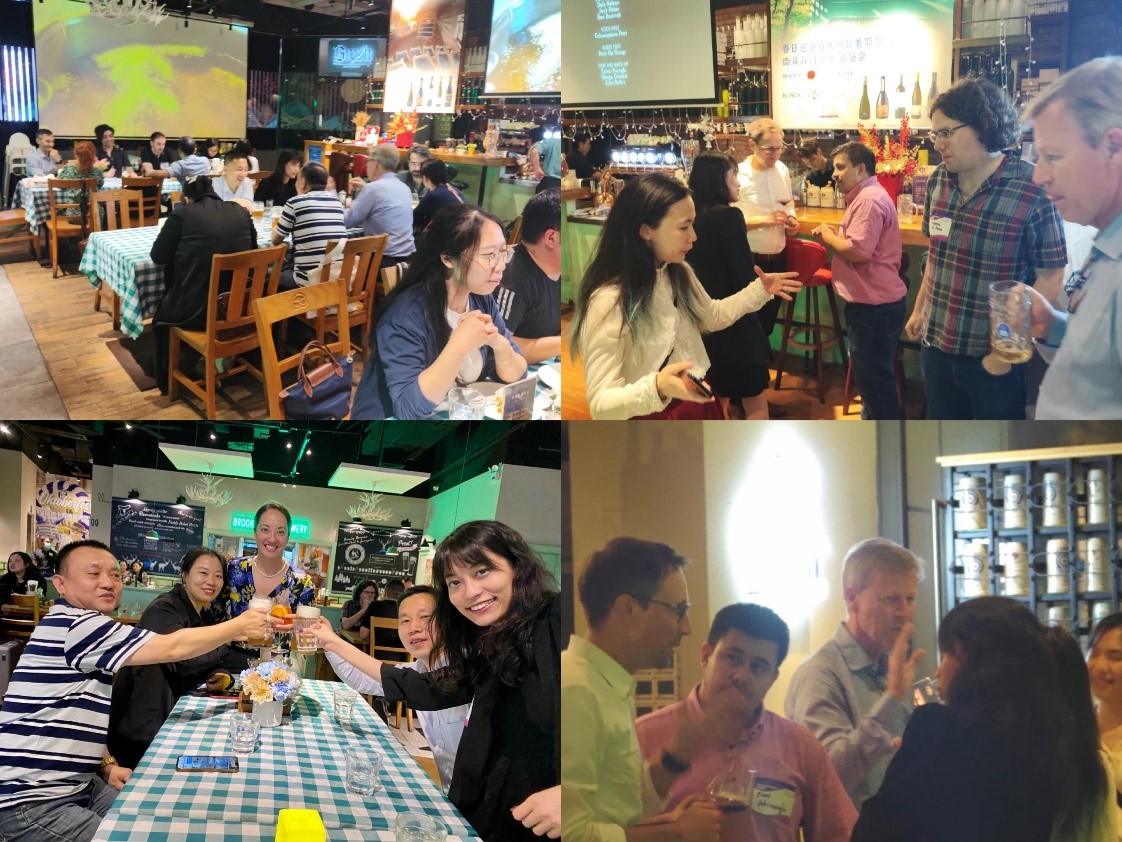Lively Discussions at Researchers' Night Guangzhou
The event, held on the evening of Friday 24 March, had a turnout of 91 people, with 55 attending on-site and 37 participating online. Mr. Jan Kühn-von Burgsdorff, the Deputy Head of Mission of the Consulate Generale of Germany in Guangzhou and Melanie Späthe, DAAD-Lecturer of the Sun Yat-sen University, delivered a welcome speech to all the participants.

The audience at the event Halldor Berg
The event was co-hosted with the kick-off of the Science Communication Training, a series of online webinars aimed at helping researchers in China improve their presentation skills.
ChatGPT and its implications for our future
The event featured lively discussions on the impact of ChatGPT on science communication, as well as a new tool called the Science Slam Brainstormer, a customized webapp made for this year’s Science Slam Science Communication Training that uses GPT to generate a 2-3 minute presentation script for scientists to present their research to a general audience in an engaging and captivating way. The app offers five sliders to adjust the level of professionalism, inspiration, appeal, humor, and relatability. It also provides a starting point for researchers to personalize the script and structure a communication piece that will engage their audience.

Mr. Halldor Berg presenting”the Science Slam Brainstormer” Halldor Berg
Attendees also heard from experts on the history and technology behind GPT and its main challenges. ChatGPT uses a Natural Language Processing method known as a Large Language Model. Essentially, through a combination of human reinforcement and an unreal amount of text, ChatGPT can accurately guess and assemble words, sentences, and paragraphs that are grammatically correct based on a given prompt.
Dr. ZHANG Xueting, OpenAI researcher and specialist has called for the potential as well as the limitations of ChatGPT, presenting intriguing opportunities for academia. As most of us would agree, academia must continue to shift from an unidirectional knowledge transfer to an active development of competencies, social abilities, and technological agility. Access to information has democratized knowledge acquisition, and ChatGPT may synthesize the use of various sources, although not without its bias.
Obviously, this represents a challenge for universities; but instead of taking ChatGPT as a threat, the higher education sector should continue to analyze its advantages and use them in favor of the student to achieve their educational objectives.

Dr. Zhang Xuetings Introducation about ChatGPT© DAAD
Open Call to Falling Walls Lab Shenzhen 2023
Co-organizer Melanie Späthe, (DAAD-Lecturer at the Sun Ya-tsen University) introduced
an unique international science competition for young researchers open to all disciplines: The Falling Walls Lab Shenzhen 2023. The goal of Falling Walls is to foster discussion on research and innovation and promotes the latest scientific findings to a broad audience from all parts of society. In 3 minutes, each participants try to convince a high-calibre jury of their solutions to some of the most pressing challenges of our time. The competition is open to both Chinese nationals and non-Chinese researchers based in China. The winner of the China competition gets to participate in the global finals in Berlin, Germany, and have the opportunity to network with other researchers from around the world.

Ms. Melanie Späthe’s introduction about the Falling Walls Lab Shenzhen 2023 Halldor Berg
Researchers’ Night Guangzhou
The Researchers’ Night provided a platform for Chinese and European researchers to network in a laid-back atmosphere while discussing interesting topics. The event was a great success, with attendees continuing the networking and discussions at a nearby German restaurant.

Happy Researchers’s night after the event Halldor Berg
We would like to thank everyone who attended the event and made it a success.
Impression about the event:
– Dr. Florian Vogel, Associate Professor, Institute of Advanced Wear& Corrosion Resistant Functional Materials, Jinan University
“The Researchers Night in Guangzhou was a really great event, bringing together scientists and industry leaders from many disciplines, to connect, network and exchange.I found it intriguing to learn more about AI and how we can possibly implement it to support our own work or let it help us to understand how to enhance clarity of scientific communication. The speakers presented these aspects in creative and inspiring ways. I found the event a great platform for networking, especially from an interdisciplinary perspective. I could meet many people and hear about their interesting stories and the science questions they’re trying to answer. It had a direct impact: With some of them I’m now in contact discussing ways how to work together. ”
Melanie Späthe









